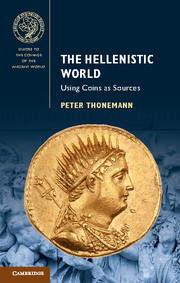Book contents
- Frontmatter
- Contents
- List of maps
- List of figures
- Preface
- List of abbreviations
- Maps
- Part I Globalization
- Part II Identity
- 3 Civic identities
- 4 Collective identities
- 5 Hellenizing identities
- Part III Political economy
- Part IV Ideology
- Guide to further reading
- Appendices (by Andrew Meadows)
- Bibliography
- Index
3 - Civic identities
from Part II - Identity
Published online by Cambridge University Press: 05 December 2015
- Frontmatter
- Contents
- List of maps
- List of figures
- Preface
- List of abbreviations
- Maps
- Part I Globalization
- Part II Identity
- 3 Civic identities
- 4 Collective identities
- 5 Hellenizing identities
- Part III Political economy
- Part IV Ideology
- Guide to further reading
- Appendices (by Andrew Meadows)
- Bibliography
- Index
Summary
Introduction
For one grouchy Athenian orator, Philip II of Macedon's victory over Athens and Thebes at Chaeronea in 338 BC was the moment that ‘the affairs of Greece fell into slavery’ (Lycurgus, Against Leocrates 50). Then again, he would say that. For aggressive imperialists like the fourth-century Athenians, the rise of the great Macedonian kingdoms was nothing but bad news (Habicht 1997). Other Greeks saw things differently. The average Greek city had spent two centuries being pushed around by the Athenians, Spartans and Thebans: in small towns like Sicyon, Chalcis and Mytilene, I imagine that the humbling of the Athenians at Chaeronea was met with street parties.
Most Hellenistic Greek poleis enjoyed far more freedom of action than they had ever had in the fifth or fourth century BC (Ma 2000). Hellenistic kings had little reason to meddle with the internal affairs of Greek cities in their zone of influence, and inter-city diplomacy and polis warfare were pursued with a new enthusiasm. Despite the doubts of some modern scholars (Gruen 1984: I, 133–42), when Hellenistic cities celebrated their ‘freedom and autonomy’, they really did mean what they said.
The civic coins struck by Greek cities in this period are vivid evidence of the continuing vitality of civic life and civic identity in the third and second centuries BC. Yet they bring surprises too. In the Aegean and western Asia Minor, city coinages go through periods of sharp decline (such as the early third century BC), alternating with sudden revivals (most obviously in the mid-second century BC). These unexpected rhythms of minting cry out for explanation. Can changes in the volume and character of civic coinages be explained by the cities’ changing relationships with Hellenistic kings? Or did civic mints respond in a pragmatic way to the amount of royal coinage in circulation, striking their own coins only when there was an immediate financial need? Or – the most interesting possibility of all – might we be dealing with a series of positive choices by the cities about how to represent their own civic identity?
The civic coinages of the Hellenistic world are bewildering in their quantity and variety. In this chapter, I shall focus on the city coins of a single region, western Asia Minor and the offshore islands.
- Type
- Chapter
- Information
- The Hellenistic WorldUsing Coins as Sources, pp. 45 - 65Publisher: Cambridge University PressPrint publication year: 2016

